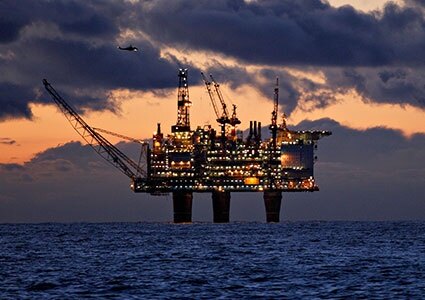
Angus Walker offers some analysis of the UK government’s oil and gas announcements
On 31 July the Prime Minister flew to Aberdeen on his private jet and announced that the government would be awarding ‘hundreds’ of licenses to extract oil and gas from the North Sea. Why?
In many ways nothing new has happened. The North Sea Transition Authority awards oil and gas extraction licenses and will award the latest batch as normal later this year. One hundred and fifteen bids have been received and it is expected to award 100 of those.
The government justifies the compatibility of these awards with net zero on two fronts. First, it claims that gas extracted from UK waters ‘is almost four times cleaner than imports’; to quote the headline in the North Sea Transition Authority press release. There is nothing special about North Sea gas, it is just the method of transportation that reduces emissions as it does not get liquefied, transported and regasified as do supplies from further afield, and it is those processes that result in the high carbon intensity figure. Indeed, a gas pipeline direct from Norway that does not undergo that process to get to the UK has less than half the carbon intensity of North Sea gas.
The headline is actually highly misleading because the accompanying article has a little asterisk saying ‘(except pipeline imports from Norway)’ and 74 percent of imported gas comes through that pipeline (according to the ONS). If you include those imports, the average carbon intensity is 25.1 kgCO2/boe (barrel of oil equivalent), only slightly larger than the UK figure of 21.
The second justification is that the government is pressing ahead with carbon capture projects. If oil and gas are to remain part of the energy mix in 2050, the date that net zero carbon emissions are to be achieved in the UK, then CO2 will have to be captured at the point that the oil and gas are combusted and then stored. There is no direct link to new oil and gas extraction from the North Sea and its combustion in the UK, but it will clearly help achieve net zero if carbon capture moves on apace.
Cluster projects
Carbon capture technology is advancing but has not yet been done at significant scale. The UK approach has been rather than relying on (or in addition to) each emitter sorting its own carbon capture out, focusing on the country’s industrial clusters and capturing carbon at the main emitters to be fed into a network of pipelines and deposited under the sea. By focusing on clusters, the greatest carbon capture can be achieved the quickest, getting the industry off the ground for tackling more isolated emitters in due course.
To that end, there was a new announcement on 28 July, that the Acorn (in Scotland) and Viking (on Humberside) carbon capture cluster projects would be supported as ‘Track-2’, i.e. the second set of clusters to get this recognition. ‘Track-1’ was announced last year and includes HyNet in the north west of England, and a combination of Net Zero Teesside and Humber Low Carbon Pipelines to the east of England, with Acorn as a reserve (its Track-1 reserve status being confirmed as part of the Track-2 announcement).

National priority
For these clusters, typically each emitter gets consent for a capture plant adjacent to its site, either via a planning application, or if it is combined with a new facility, a Development Consent Order (DCO) for both the facility and capture plant. Separately, a network of CO2 pipelines is developed by a separate company, and also authorized via a DCO, with the offshore portion and storage facility being authorized by separate consents and usually yet another company. All these developments run at different speeds and are at different stages, so it is very challenging to coordinate each overall project with so many parts, especially against a background of policy and legislative changes. There is a general reluctance to have a ‘build it and they will come’ approach to energy infrastructure in the UK, e.g. building the network of pipelines before the emitters’ carbon capture facilities are up and running, but the urgency of net zero demands that this should change.
For carbon capture to become a large scale contributor to Net Zero in the UK, the following are needed: first, a clear government declaration that it is urgently needed and network elements need not wait for other elements to be ready before going ahead (even at the risk of the odd stranded asset), perhaps declaring carbon capture infrastructure as a critical national priority as is being done with offshore wind and associated electricity networks. Secondly, a clear statement of who pays for what, how, and when, whether by licensing or otherwise. Finally, a declaration that existing emitters will need to have their carbon captured by a certain date or face closure would provide the incentive to breathe life into this currently flagging area.
Angus Walker
www.bdbpitmans.com
Angus Walker is one of the partners at BDB Pitmans. BDB Pitmans operates from four offices locations: London, Cambridge, Reading and Southampton. The firm’s key practice areas include corporate and commercial, planning and infrastructure, litigation, private wealth, public affairs, public law, real estate, restructuring and insolvency. In the 2023 edition of Legal 500 rankings, BDB Pitmans has been recommended in 41 practice areas, with Tier 1 rankings across multiple areas of law.